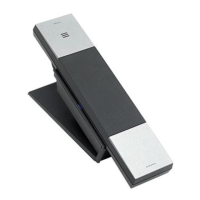M. SAFETY PRECAUTIONS
When using your telephone equipment, basic safety precautions should always be followed to
reduce the risk of fire, electric shock and injury to persons, including the following:
z Do not use this product near water, for example, near a bath tub, wash bowl, kitchen sink or
laundry tub, in a wet basement or near a swimming pool. Do not allow the handset to come
into contact with liquids or moisture.
z Avoid using a telephone (other than a cordless type) during an electrical storm. There may
be a remote risk of electric shock from lightning.
z Do not use the telephone to report a gas leak in the vicinity of the leak.
z Use only the power cord and batteries indicated in this manual. Do not dispose of batteries in
a fire. They may explode. Check with local codes for possible special disposal instructions.
z Connect the adaptor to a socket-outlet near the equipment which is easily accessible.
z Do not open the handset, base station or charger. This could expose you to high voltage.
z Do not allow the charging contacts of the charger or the battery to come into contact with
extraneous conductive materials.
z Young children should be supervised to ensure that they do not play with the telephone.
z Since the phone works by sending radio signals between the base unit and the handset,
wearers of hearing aids may experience interference in the form of a humming noise.
z We advise that this phone should not be used near intensive care medical equipment or by
persons with pacemakers.
z Your phone can interfere with electrical equipment such as answering machines, TV, and
radio sets if placed too close. It is recommended that you position the base unit a least one
meter form such appliances.

